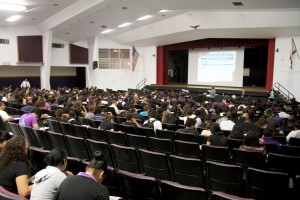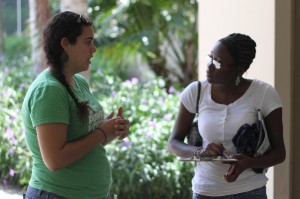For years, Raymond Rutherford used for official identification a photo ID card issued in 1979 by a Sumter, S.C., discount liquor store.
When Rutherford recently sought to comply with a new South Carolina law that requires a government-issued ID to register to vote, he found that the state would not accept his store-issued ID. He had to show his Social Security card to get a government-issued ID. The problem is that card carries the birth certificate error made by the midwife who delivered him. It incorrectly identified him as Ramon Croskey. The midwife forgot his mother’s married name, he said.
Rutherford’s birth certificate, errors and all, was used when he applied for a Social Security card.
Rutherford described his situation in stark terms. He compared the issue of voter IDs in South Carolina to that of slaves who were beholden to white masters for their identity.
“[They] couldn’t do anything unless their master
signed for it,” he said. “They didn’t have
proof what their name was, so they took whatever name
their master gave them. It seems
to me they’re trying to send us years back, where
they can control who we vote for.”
Rutherford is still working to obtain an ID so he
can vote in the November election if the South
Carolina voter ID law is upheld in federal court. A
ruling could come in
early September.
By Caitlin O’Donnell, News21






